|
Sung Sohn attended the 7th anniversary of Glendale “Comfort Women” Day opening reception on Saturday, July 28 at 5 pm at Downtown Central Library Auditorium. The 7th anniversary kicked off with the “Do the Right Thing: Comfort Women Resist” exhibition in Downtown Central Library. The exhibition continues until Sept 11, 2018. This year’s exhibit explores WWII Asian “Comfort Women” narratives of survival and resistance to denial. Approximately 500 guests joined the celebration, at which Sung Sohn made a presentation on continuing efforts to address the sidelined history of Japanese military sex slaves in the San Francisco Bay Area. Chang-Yup Lee, Glendale City Planning Commissioner, who played a major role in the installation of the Glendale “Comfort Women” Memorial, has helped to plan for the event.
0 Comments
Jeongdaehyeop President Yoon Mi-hyang (left) and Education for Social Justice Foundation President Sohn Sung-suk (right) pose together with a teaching guide concerning sexual slavery under the Japanese imperial army. (Hwang Geum-bi, staff reporter) Originally Posted on Hankyoreh – English, Korean
San Francisco-based foundation works with Korean organization to educate American students On July 3, Sohn Sung-suk, a 53-year-old Korean-American, delivered educational material about the comfort women under the Japanese imperial army to the Korean Council for the Women Drafted for Military Sexual Slavery by Japan (Jeongdaehyeop). As president of the San Francisco-based Education for Social Justice Foundation, Sohn has been working to raise historical awareness of the comfort women. Sohn met Jeongdaehyeop President Yoon Mi-hyang in the group’s office in Seoul’s Mapo District on the afternoon of July 3 and gave Yoon a teaching guide containing lesson plans about the comfort women. This teacher’s guide was distributed to 18 public high schools in San Francisco in April. The cover of the Education for Social Justice Foundation’s teaching guide, “Comfort Women” History, and Issues. The Education for Social Justice Foundation started creating the teaching guide last fall. The guide is divided into four sections. The first details the history of the comfort women movement during the 1990s and introduces the memorial statue that was built in San Francisco; the second explains the historical facts and documents related to the recruitment of the comfort women in the 1930s; the third contains the teaching plans; and the fourth is composed of students’ worksheets. “Since the news got out, requests have been coming in from teachers working in New York and Irvine who want access to the teacher’s guide,” said Sohn, who was instrumental in creating the guide. Civic groups in places outside Korea such as Vancouver in Canada and New Jersey in the US have played a leading role in educating history teachers about the comfort women, but the Education for Social Justice Foundation is reportedly the first group that has created its own teaching materials for distribution. Sung Sohn provided historical background on the issues of “comfort women” to summer interns at Pacific Atrocities Education in San Francisco. Four interns made many insightful comments and posed questions about the topic. Together, we critically examined several primary documents from the ‘30s and ‘40s. Racism was the most common historical concern for the participants. At the end of my presentation, the interns arrived at the conclusion that the topic of “comfort women” is deeply rooted in racism, imperialism, cycles of oppression, discrimination, and violence, as well as crimes against humanity. Jenny Chan, Co-Founder of the organization, is running the internship program for the second time this summer.
Sung Sohn spoke at the 1,342nd “Wednesday Rally,” a weekly protest in support of “comfort women” being held across from the Japanese Embassy in Seoul, Korea. The Korean Council for the Women Drafted for Military Sexual Slavery in Japan (Jung Dae Hyup in Korean) has been holding these rallies since January 8, 1992. Sohn shared an update on the activities of ESJF and the rally attendees responded with enthusiasm.
At the rally, a few activists and scholars from other countries and other parts of the U.S. asked about the ESJF’s publication and requested to work together. |
CategoriesCategories |
Proudly powered by Weebly

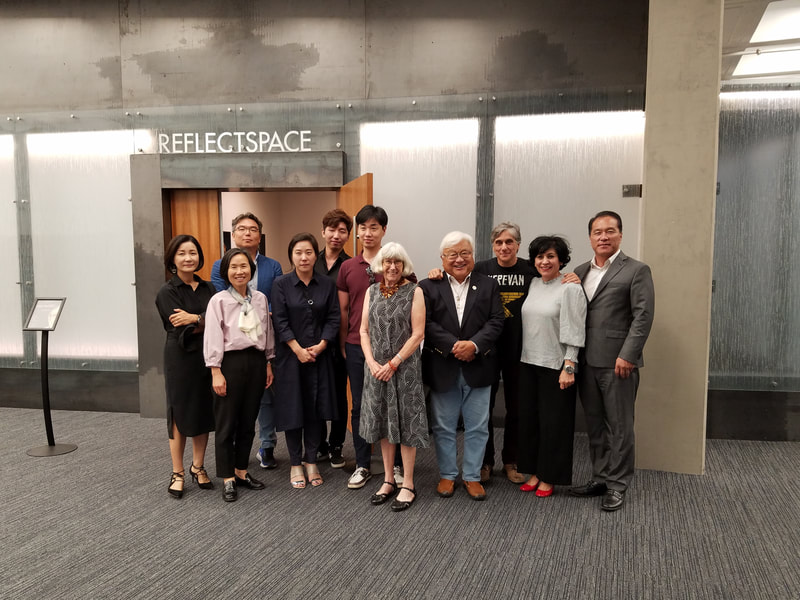
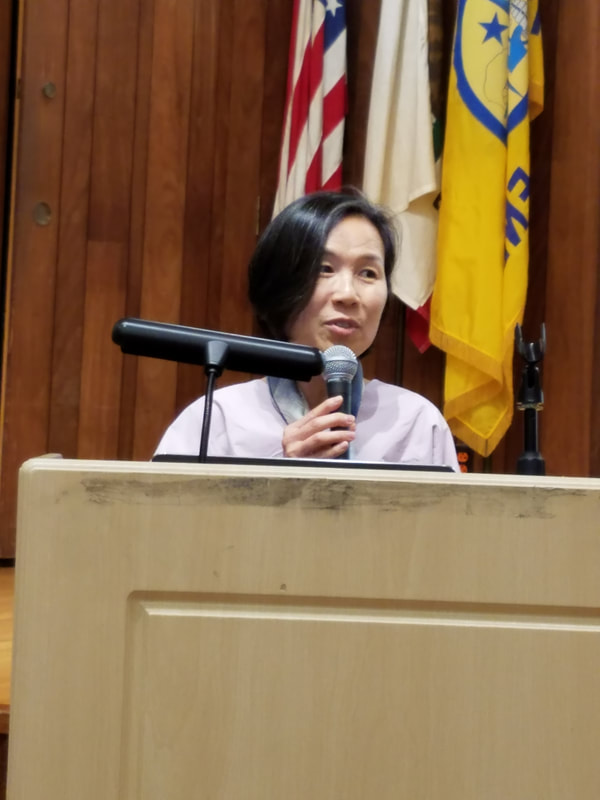
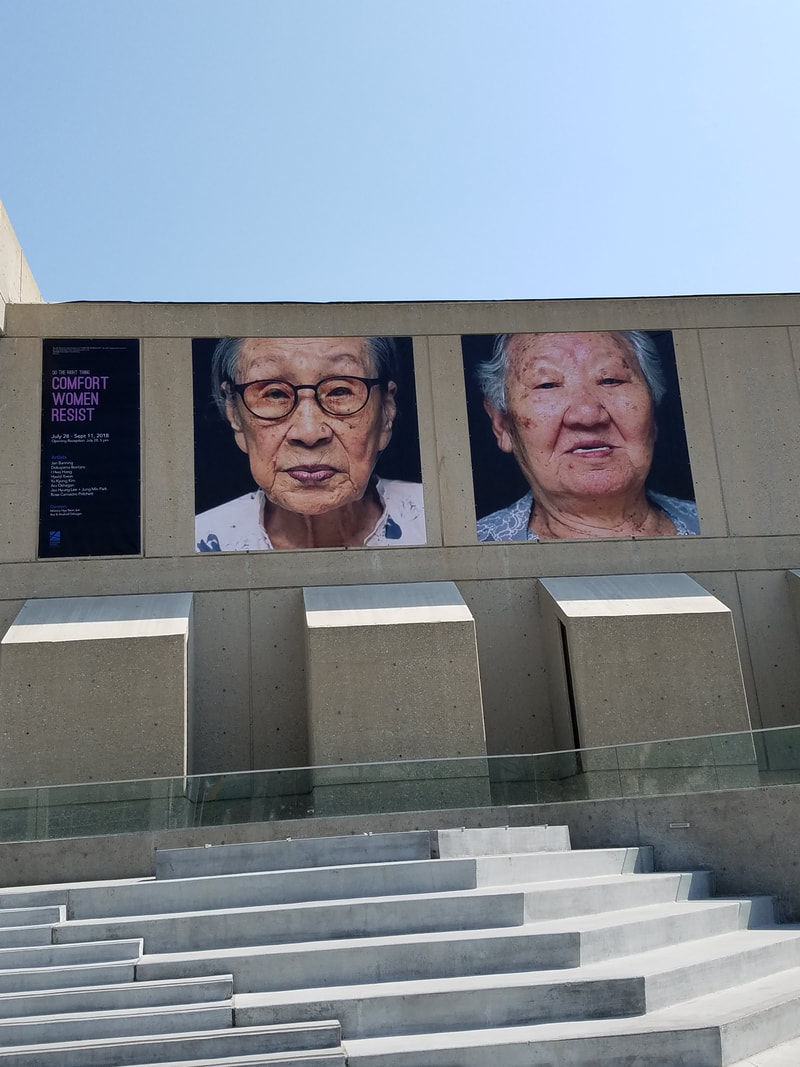
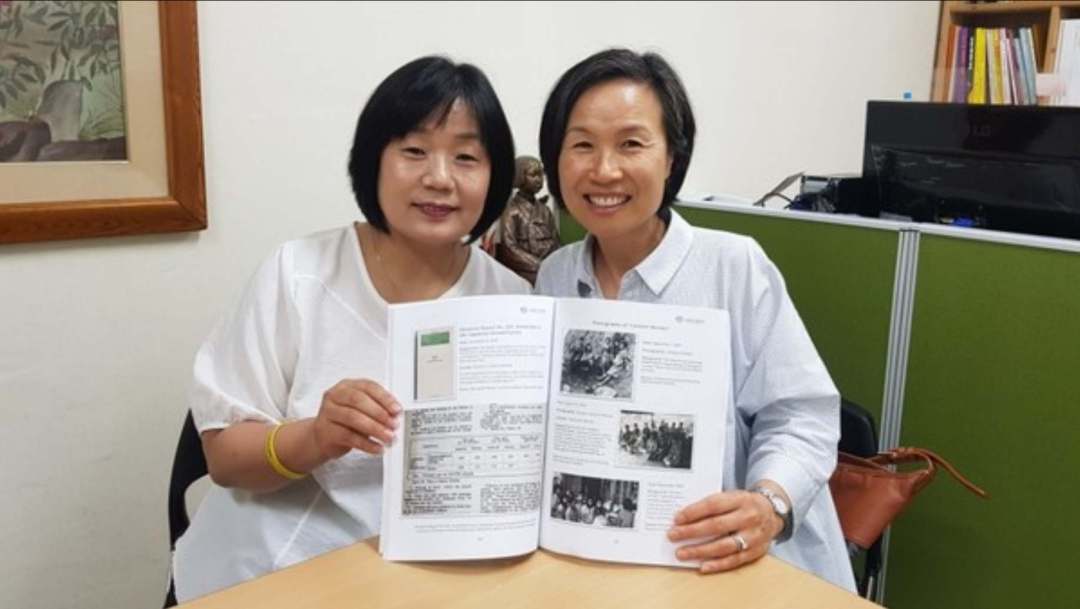
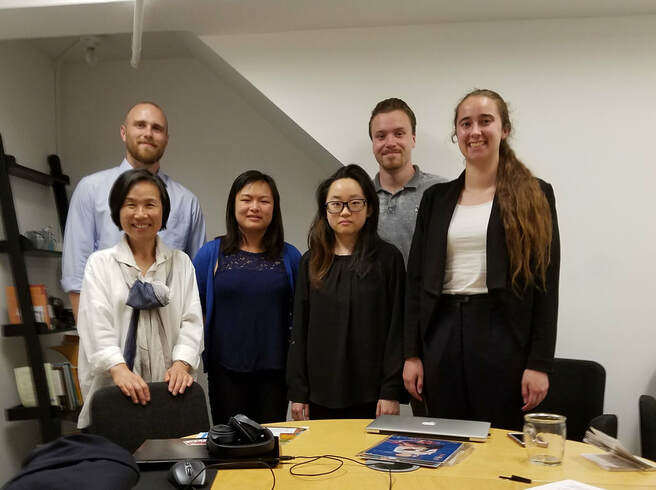
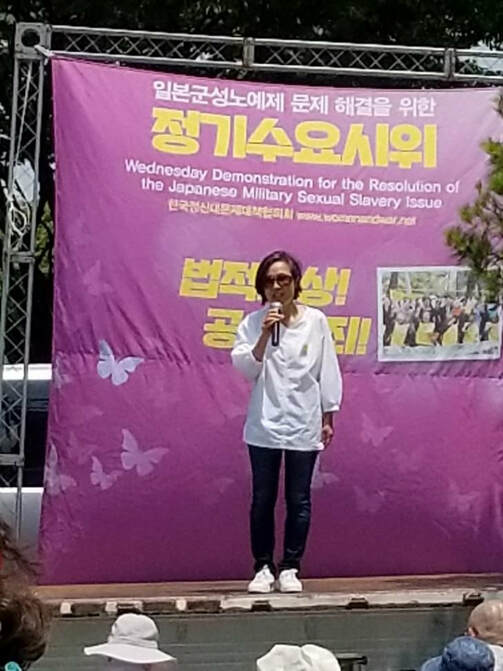
 RSS Feed
RSS Feed